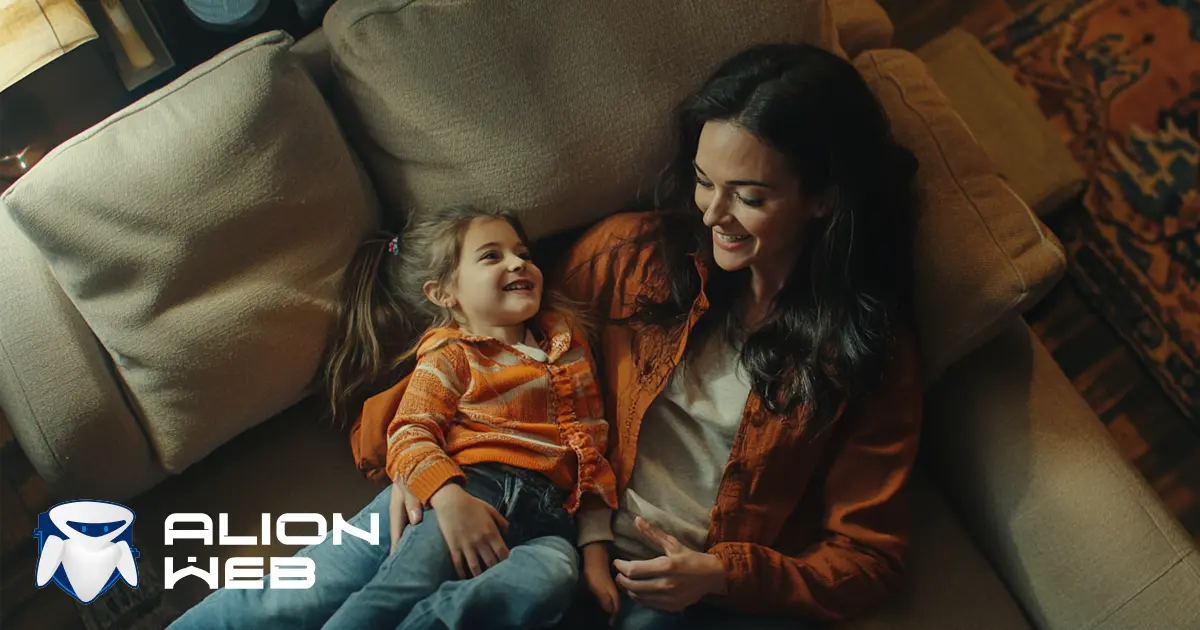The Impact of the Internet on Hyperactive Children

Modern children live in a world where the internet plays a central role in their daily lives. For most of them, it serves as a source of entertainment, knowledge, and communication.
For hyperactive children, who require a special approach, the internet can have both positive and negative effects.
Hyperactivity, or Attention Deficit Hyperactivity Disorder (ADHD), is a condition characterized by difficulties with focus, impulsivity, and excessive activity.
For such children, the internet can act as both a catalyst for development and a source of additional stress.
How does the internet affect the attention of hyperactive children?
Hyperactive children often struggle to concentrate on a single task for an extended period. They tend to switch from one activity to another without completing what they started. In this context, the internet—with its constant notifications, links, and updates—can worsen these issues.
The nature of the internet is an endless stream of information that demands rapid attention shifts. Videos, social media, and games all lure the child by offering instant gratification and vivid emotions.
This, in turn, reinforces hyperactive behavior, making it even harder for the child to maintain prolonged focus. But it’s important to understand that not all internet activity has the same effect. For example, intense video games or endless scrolling through news feeds can indeed impair a child’s ability to concentrate on important tasks.
However, educational apps and interactive activities can help hyperactive children develop attention and improve concentration—if chosen wisely.
Social media and the emotional state of hyperactive children
Hyperactive children often face communication difficulties and may feel isolated, especially if their behavior differs from the norms accepted by their peers.
Platforms like Instagram, TikTok, and YouTube can offer these children a chance to find like-minded individuals and build new connections.
However, constant comparisons, likes, and comments can impact their self-esteem, especially if they struggle to form real-life friendships. A reliance on virtual approval can heighten anxiety, increase stress levels, and even lead to depression.
Additionally, the fast-paced consumption of content on social networks and video platforms leaves little time for reflection, which can worsen issues with self-regulation and attention.
The impact of online games on hyperactive children
Video games are one of the most popular leisure activities among children. For hyperactive children, they can have both positive and negative impacts—depending on the type of game and duration of play.
Positive aspects: Strategic games can help hyperactive children improve planning, logical thinking, and attention. Some games require active engagement, which can help children with excess energy release tension and improve coordination.
Negative aspects: Extended gaming sessions can harm concentration and self-control. Games filled with violence or aggression may affect emotional well-being, increasing irritability and impulsiveness. Spending too much time on games can also lead to social isolation and addiction.
The internet as a tool for the development of hyperactive children
With the right approach, the internet can become a valuable tool for supporting hyperactive children. Instead of fully restricting access, it is better to learn how to guide their interests and activities in a constructive direction.
The positive side of generational differences
Generational differences can be beneficial. Parents can pass on values like hard work and responsibility, while children can teach their parents to be more flexible and open to new ideas.
Parents over 40 play a key role in raising the next generation. It's important to listen to children, respect their needs, and help them understand the balance between the real and virtual worlds.
Recommendations for parents:
Use educational platforms — Apps and websites that develop attention, memory, and logical thinking can be a great addition to traditional learning.
Set clear time limits — It is important to monitor how much time a child spends online in order to prevent addiction and maintain a balance between various activities.
Monitor content — Select only age-appropriate resources that support the child's development, avoiding aggressive or overly stimulating materials.
Engage in joint activities — Whenever possible, play educational games or watch informative videos with the child to discuss them and direct their attention in a positive direction.
Psychological aspect: how to minimize risks
Psychological support is important for hyperactive children, and the internet should only supplement traditional behavior correction methods. Regular conversations with the child about what they see online can help reduce anxiety and shape a healthy attitude toward the digital world.
Install AlionWeb to protect your child and have peace of mind
